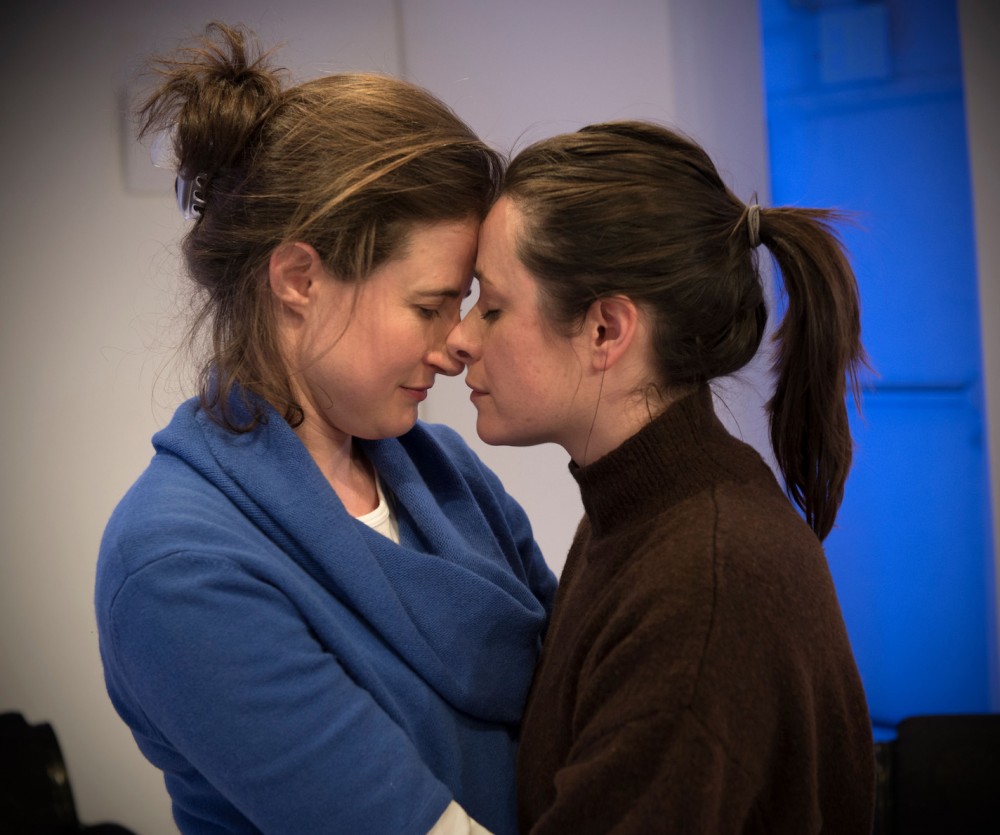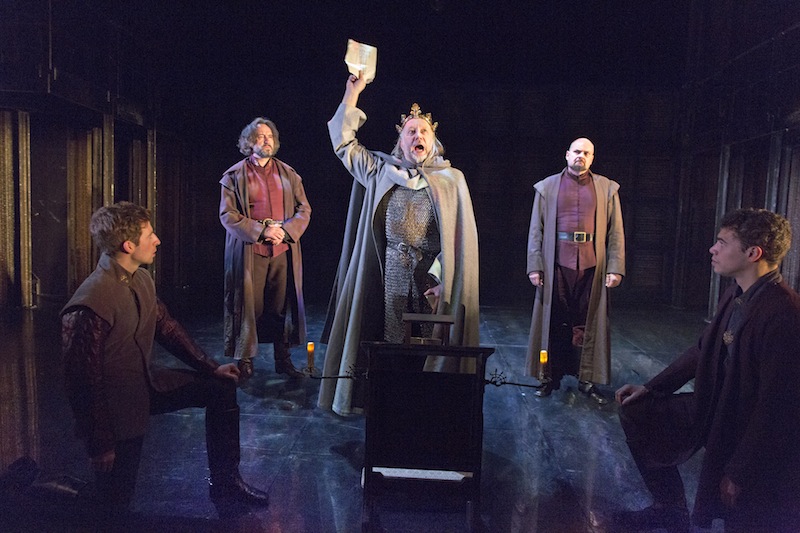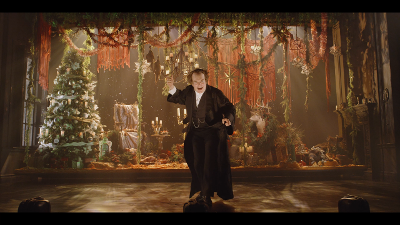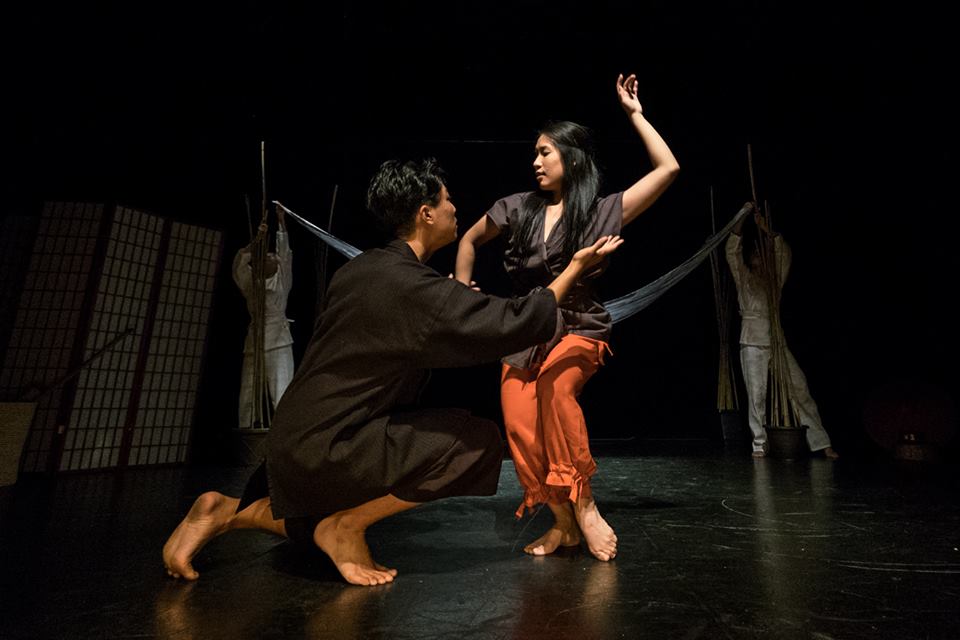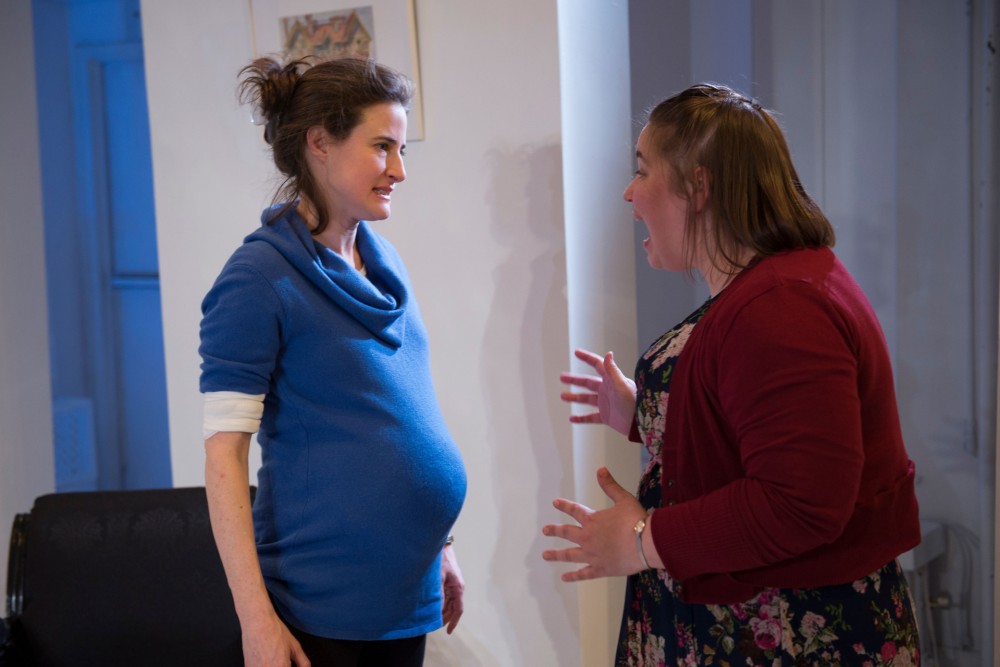
Xanthe Elbrick, Amy Scanlon
by Carol Di Tosti
Happiness is a sleight of mind. When it is founded on lies, duplicities and secrets, it will never last, even though one may desperately cling to its illusion. In Charlie’s Waiting, finely directed by Ludovica Villar-Hauser, two lovers Kelly (lovely Stephanie Heitman) and a pregnant Louise (the excellent Xanthe Elbrick) prepare for their wedding day with joy, especially Louise. She assumes that their relationship will last, sealed by vows of marriage, witnessed by guests and family in a lovely celebration.
However, into the idyllic scene comes a secret brought by Annie (an interesting Amy Scanlon). While Kelly is feeding her neighbor’s goats on the adjoining farm, Annie, who Louise assumes is a wedding guest friend of Kelly’s, interrupts Louise’s flurry of activity. Louise extends hospitality after awkward silences and Annie’s apparent nervousness, which the loquacious Louise attempts to allay.
During the course of getting acquainted, Annie reveals she is Kelly’s former college roommate; Louise discusses enthusiastically how she met Kelly and how they have been together in a wonderful relationship. However, there is a disconnect which never is bridged.
Annie notes that her friendship with Kelly concerns a woman who is very different from the gay fiancée of Louise formerly known to Annie as “Kellyann.” When Annie states that “Kellyann” has an 8-year-old-son Charlie who is Annie’s brother, and that she’s raised him alone, Louise initially is nonplussed, until the situation worsens. and Annie is leaving Charlie with “Kellyann,” his mother. Annie intends to be with her lover in another country and “Kellyann” will have to take care of Charlie who presently sits in a cold car at the end of the drive. Annie finishes her revelations with pointed deliberation as she waits for Kelly to return.
The mystery Annie presents about Kellyann/Kelly hits Louise like a bomb. Her old knowledge and relationship with Kelly crumbles before her eyes. She must quickly decide what to do. Though Kelly has been a cipher, Annie is not. She is the very real stepdaughter of her fiancée, who has never informed her about Charlie and the complications, if any, of his conception. When Annie sanguinely reveals that Charlie’s Dad (Kelly’s lover or rapist) killed himself, Louise must put the pieces together.
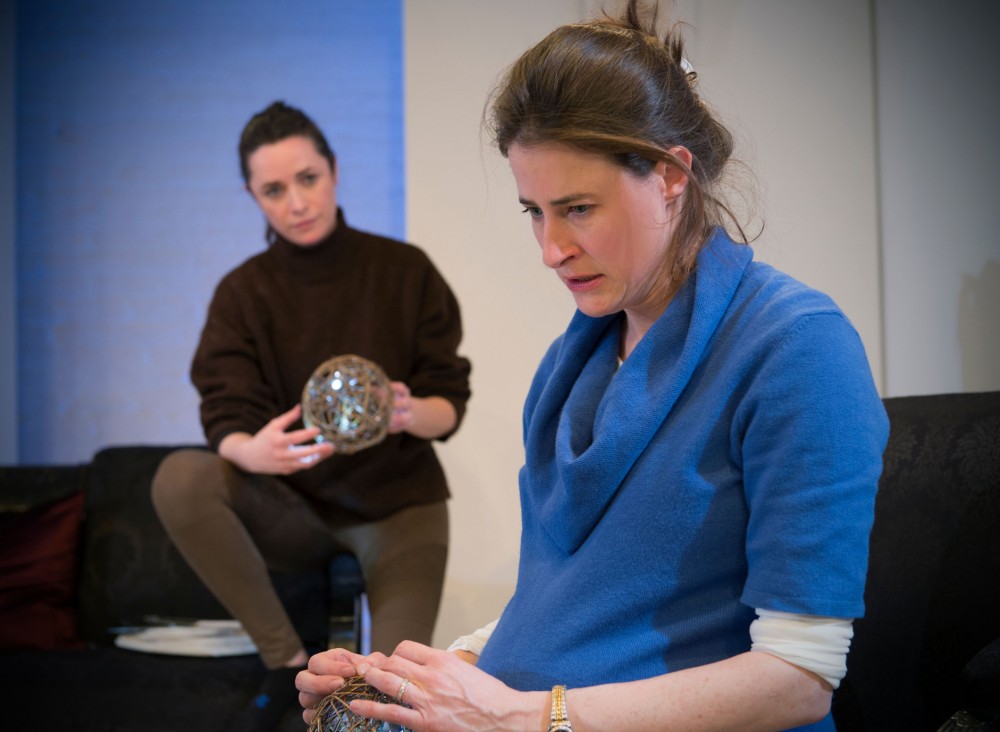

Stephanie Heitman, Xanthe Elbrick
Who is this “Kellyanne” who is “straight” according to Annie, and who also left her child to Annie to raise? Louise abuses Annie and Annie leaves before Kelly returns. The question remains: what should Louise do on the eve of her wedding to her fiancée Sphynx?
Should she look for corroborating evidence that Kellyanne is the same Kelly she is about to give her money and her life to sealed in the bonds of marriage? Her fiancée’s lies of omission are deceitful and suspect. Indeed, they overthrow the sanctity of Louise’s love for Kelly, and thrust their relationship into grave duplicity. Shouldn’t Louise test their love and confront Kelly with the truth even if it means she may be forced to cancel the wedding? Or should her love for Kelly obliterate this other Kellyanne persona as someone who never existed along with Annie, Charlie and their deceased father?
How Mêlisa Annis resolves the convolutions she too slowly presents in the scene between Annie and Louise is the subject of the second half of the play, a continuation of what is problematic in the first half. After Annie leaves, we imagine the scene between Kelly and Louise will be fraught with tremendous conflict and revelations commensurate with the shock that registers on Louise’s face when Annie devastates her with the truth. Unfortunately, the playwright never fulfills the opportunities set forth in the first segment. The women never acknowledge Kelly’s son, her past, her relationship with Annie or Annie’s/Charlie’s father and his suicide. Both are desperate to pretend, though underneath the truth waits to be revealed, as Charlie waits (and waits) in the cold car.
The play wallows in the murkiness of uncertainty and dark cruelty. The audience is left to resolve the chaos of these elements for themselves. At the least we understand that Louise selfishly, desperately, sacrifices Charlie who waits for deliverance. A controlling Kelly encourages Louise’s blindness to satisfy her own warped agenda. Both seek illusion and fantasy, a sick twist, to keep the inconvenient past at bay. Ironically, by abiding in lies, they open themselves and each other to a world of future self-torment, guilt and abuse.
Charlie’s Waiting. Through April 20 runs with no intermission at Theaterlab (357 West 36th Street, between Eighth and Ninth Avenues). 75 minutes, no intermission. www.parityproductions.org
Photos: John Quilty


